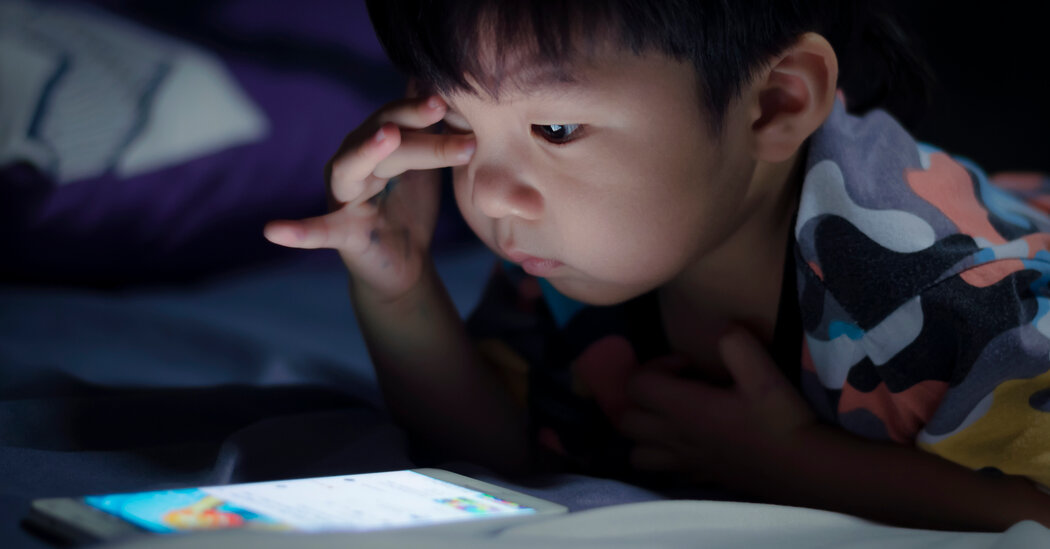Dr. Adiaha Spinks-Franklin, a developmental behavioral pediatrician at Texas Children’s Hospital and an associate professor at Baylor, called those devices “the No. 1 sleep enemy,” and said they had become a huge issue for many of her patients, home for months, often with limits relaxed on computer time, YouTube and other screen exposures. She emphasized the need for an hour of screen-free time before bed: “It takes an hour for the brain to calm down,” she said.
Resist any arguments to let the phone into a child’s bedroom at night, Dr. Spinks-Franklin said; buy an alarm clock, if a child needs an alarm clock, rather than using the phone. “Put bells on your doorknob, lock the electronics in a drawer in your room, sleep with a key around your neck,” she said. “Parents are in charge, not children, parents have jobs that pay for the electronics, the internet, the electricity, the apps.”
Dr. Owens, who was a co-author on the Chinese study, said she was struck by the ways that many parents had been able to be more involved than usual with their children, and that this had been helpful with regard to sleep. “When children sense their caregivers are engaged, addressing fears, setting appropriate limits,” sleep gets better, she said. “It’s not just what you do at night that helps with your circadian rhythms, it’s having regular mealtimes, having things you do at a certain time during the day every day,” she said. Natural light exposure and exercise are also important in underscoring natural circadian rhythms, she said.
For children who are sleeping without problems, but on a different schedule because of the pandemic, August is a time when parents can try and help them recalibrate for school in the fall, whether in-person, remote or “hybrid.” Dr. Spinks-Franklin suggested waking children earlier and earlier on successive days. “If they’re not sleepy, then putting them to bed early is not going to work,” she said. “You actually have to rob them of sleep.”
Schools Reopening ›
Back to School
Updated Aug. 17, 2020
The latest on how schools are navigating the pandemic.
Dr. Owens said, “Start by moving wake time earlier in increments for a couple of days, then move sleep time so they fall asleep earlier in the evening,” No napping during the day. And along with avoiding screens in the period before bed, try for natural light exposure in the morning, as soon as the child wakes up.
With younger children, enforce a regular bedtime, and don’t vary it on weekends. With older children and adolescents, Dr. Owens said, don’t let them spend the day in bed, whether they’re online or working on their homework: “That’s a recipe for the development of insomnia, they start to associate being in bed with being awake.”
There will be much more research coming in, on preschoolers, school-age children and adolescents, in countries around the world, as schools open up and as schools teach remotely. Dr. Owens said: “The jury is still very much out in terms of the potential impact of different learning platforms on sleep and mental health.”
[ad_2]
Source link


